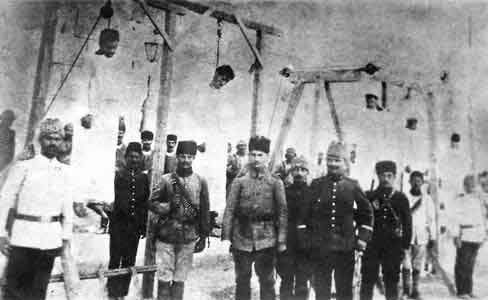By Ghassan Karam Special to YaLibnan
One of the many popular sayings by Winston Churchill was his statement in response to Hitler’s invasion of the Soviet Union in 1941: “”If Hitler invaded Hell; I would make at least a favourable reference to the Devil in the House of Commons.” This restatement of the Arab proverb that “The enemy of my enemy is my friend” has had a checkered role in shaping foreign policies of many nations. The most obvious example of the strange bedfellows that can result from such policies is the often contradictory “friendships” that the world had witnessed during the Cold War and beyond. The Soviet Union moves into Afghanistan and so immediately the US offers its unqualified support to the Mujahedeen. Another example of such strange bedfellows can be seen in the so far lengthy and strong relationship between the Saudi authoritarian monarchy and the US, a relationship that exploits Saudi antipathy to communist ideas.
This idea is usually a poor basis for a solid relationship between two countries and it often results in “blowbacks’’, unintended consequences. Witness the recent rush by many in the Arab world, including Syria, Lebanon and Saudi Arabia, to embrace Turkey and hail its leadership as potential saviours of the Arab world only because of Mr. Erdogan vocal criticism of Israeli leadership at Davos and then Turkish sponsorship of the peace flotilla that attempted to break through the Israeli blockade of Gaza.
History is replete with examples of old enemies becoming the best of friends. That is the way things should be especially when the populations of both countries share the same beliefs and values. But in this case one has to wonder about how genuine is the new relationship between secular and fairly vigourous democracies and authoritarian dogmatic dictatorships. What is also worrisome about this mad rush to form special relationships is the troubled history that connects the two people. The Ottoman Turks ruled the Arab world for over 500 years, a rule that many hold responsible for the low level of development in the Arab countries. Turkish rule was not enlightened but was characterized by its cruelty, severity and harshness. So much so that it led to the Arab revolution by Sharif of Mecca Hussein bin Ali and to the atrocities committed by Jamal Pasha against the Lebanese and Syrian nationalists. Who can forget the words spoken by one of the martyrs, Abdul Karim al Khalil: “”For your freedom we have lived and for your independence we are dying”,
Nations do forgive each other and they do move on but they do not forget their history. What is strange is that last May 6, 2010 the day when Lebanon usually celebrates the sacrifices by its martyrs was a day that passed by almost unnoticed. How can we not use the occasion of such an auspicious day in order to instill a spirit of pride in the country and to pay gratitude for those that gave their lives so that we may live free. Is there a relationship between the rapprochements to Turkey the apparent conscious decision to forget a seminal part of our history? Yes we can repair our relationship with Turkey but not at the expense of rewriting our history in order to please our new friends. Lebanon even went as far as to ban a popular Armenian song on the grounds that it makes certain unpleasant veiled references to Turkish unjust rule. The exact words written by William Saroyan:
“Go ahead, destroy Armenia. See if you can do it. Send them into the desert without bread or water. Burn their homes and churches. Then see if they will not laugh, sing and pray again. For when two of them meet anywhere in the world, see if they will not create a New Armenia.”
Lebanon, the land that prides itself for upholding the principle of freedom of speech banned a song only because it might be deemed offensive by the Turkish ambassador. It is also ironic that most of those that made the trek last year to the statute commemorating the martyrs at Martyrs square were Armenian Lebanese as if the sacrifices of the past generations do not matter. Pity a nation that is willing to trade its history for what might not be a lasting or meaningful relationship but instead is for one that is based on expediency.

Leave a Reply
You must be logged in to post a comment.